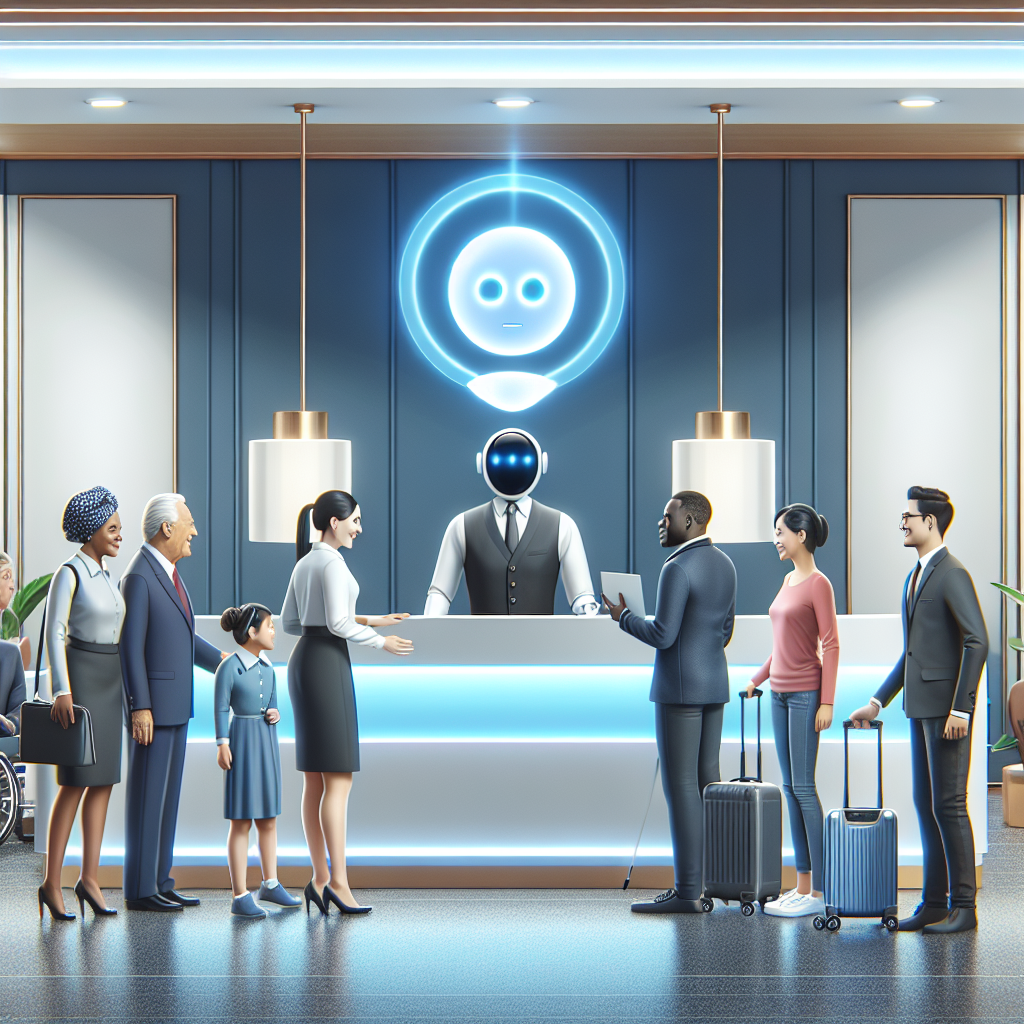Artificial Intelligence (AI) is revolutionizing various industries, and the hotel industry is no exception. One of the key areas where AI is making a significant impact is the check-in process in hotels. Traditionally, checking in at a hotel can be a time-consuming and labor-intensive process, often involving long queues at the front desk and lengthy paperwork. However, with the advent of AI technology, hotels are now able to streamline and automate the check-in process, making it more efficient and convenient for guests.
AI-powered check-in systems utilize advanced algorithms and machine learning capabilities to enhance the guest experience and improve operational efficiency. These systems can perform a variety of tasks, such as verifying guest identities, processing payments, and assigning rooms based on preferences and availability. By leveraging AI, hotels can provide a more personalized and seamless check-in experience for their guests, ultimately leading to higher levels of customer satisfaction and loyalty.
One of the key benefits of AI-powered check-in systems is the ability to reduce wait times and eliminate the need for manual paperwork. Guests can check in quickly and easily using self-service kiosks or mobile apps, allowing them to bypass the front desk altogether. This not only speeds up the check-in process but also gives guests more control over their experience, as they can choose their room preferences and make special requests directly through the AI system.
AI technology also enables hotels to gather valuable data and insights about their guests, such as their preferences, habits, and feedback. This data can be used to personalize the guest experience, tailor marketing efforts, and improve overall operations. For example, AI-powered check-in systems can recommend room upgrades or amenities based on a guest’s past preferences, leading to a more tailored and enjoyable stay.
Furthermore, AI can help hotels streamline their operations and reduce costs by automating routine tasks and optimizing resource allocation. For example, AI-powered systems can automatically adjust room rates based on demand, optimize housekeeping schedules, and predict maintenance needs to prevent downtime. By leveraging AI technology, hotels can operate more efficiently and effectively, ultimately leading to higher profitability and competitiveness in the market.
In addition to improving the check-in process, AI technology can also enhance security and safety measures in hotels. AI-powered systems can detect and alert staff to suspicious behavior or unauthorized access, helping to prevent theft, vandalism, or other security incidents. By utilizing facial recognition technology and biometric authentication, hotels can ensure that only authorized individuals have access to guest rooms and facilities, enhancing the overall safety and security of the property.
Overall, AI is revolutionizing the check-in process in hotels by providing a more efficient, personalized, and secure experience for guests. By leveraging AI technology, hotels can streamline operations, gather valuable insights, and enhance the overall guest experience, ultimately leading to higher levels of customer satisfaction and loyalty.
FAQs:
Q: How does AI-powered check-in system work?
A: AI-powered check-in systems utilize advanced algorithms and machine learning capabilities to automate and streamline the check-in process. Guests can check in using self-service kiosks or mobile apps, bypassing the front desk and completing the check-in process quickly and easily.
Q: What are the benefits of AI-powered check-in systems for hotels?
A: AI-powered check-in systems can reduce wait times, eliminate manual paperwork, personalize the guest experience, gather valuable data and insights, streamline operations, enhance security measures, and improve overall guest satisfaction and loyalty.
Q: Can AI-powered check-in systems replace human staff in hotels?
A: While AI-powered check-in systems can automate routine tasks and streamline operations, human staff are still essential for providing personalized service, addressing guest inquiries, and handling complex situations. AI technology should be seen as a complement to human staff, rather than a replacement.
Q: Are AI-powered check-in systems secure?
A: AI-powered check-in systems utilize advanced security measures, such as facial recognition technology and biometric authentication, to ensure the safety and security of guest data and information. Hotels can also implement additional security protocols to protect against potential cyber threats and breaches.
Q: How can hotels implement AI-powered check-in systems?
A: Hotels can work with AI technology providers to implement and customize AI-powered check-in systems based on their specific needs and requirements. Training staff on how to use and manage the system is also essential to ensure a smooth and successful implementation process.

